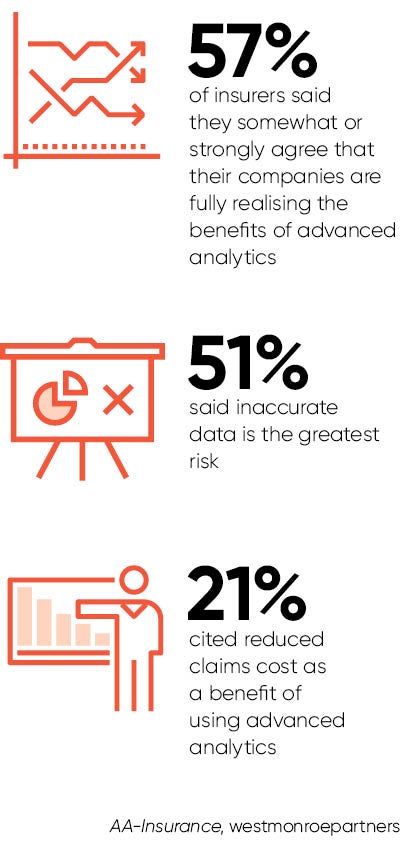Now, say experts, insurers should demand the same degree of technological choice and innovation for their own businesses as is available to consumers. To do this, they need to use data and analytics more effectively.
“Insurance companies often invest significant capital, including human and financial, to get the right data, but they can’t always deliver that data in a pragmatic way to drive better decisions,” says Bret Stone, president at SpatialKey, a one-stop shop for sourcing and delivering insight from industry-leading data providers.
Choice of data is essential, he argues. “The best solution for insight might require multiple opinions of relative hazard from different providers. Choice across vendors gives insurers the benefit of a single, best-of-breed solution that delivers insight. Because it’s difficult to consolidate and coalesce disparate data products, insurers may choose to go with one ‘preferred’ vendor even if it’s not best suited to meet their needs,” says Mr Stone.
 By collaborating with an insurtech provider like SpatialKey, forward-looking insurance companies can access a wide range of data, as well as detailed visual analytics that produce previously unrealised insight. After all, collaborating to access multiple data sources, or to select the right data for a given risk, puts insurers ahead of competitors that struggle to make efficient and accurate decisions. Insurtech companies such as SpatialKey offer an unbiased solution that delivers a single, consolidated view of risk.
By collaborating with an insurtech provider like SpatialKey, forward-looking insurance companies can access a wide range of data, as well as detailed visual analytics that produce previously unrealised insight. After all, collaborating to access multiple data sources, or to select the right data for a given risk, puts insurers ahead of competitors that struggle to make efficient and accurate decisions. Insurtech companies such as SpatialKey offer an unbiased solution that delivers a single, consolidated view of risk.
“Insurers are hungry for rapid innovation and transformation within their businesses. Solution providers can deliver innovation with better quality and speed by working together,” says Mr Stone. “Time and again, and in multiple market verticals, providers fail when attempting to build one-size-fits-all solutions. Successful solution providers remain focused in their core competencies.”
With its successful history in insurtech, more and more insurance companies are turning to SpatialKey, which is becoming the essential insight hub for the insurance industry. Insurers appreciate that SpatialKey’s workflows and analytics are tailored specifically for insurers by insurance experts, and in collaboration with its insurance clients.
“Underwriters give us one or more properties and we return the relative risk score for each hazard that a property or group of properties could be exposed to, all in one place, with the necessary insight for rapid decision-making,” says Mr Stone. “We also help underwriters understand and evaluate risk accumulations against their portfolio, so they can quickly assess what capacity is available and how prospective risks correlate with their portfolio. In this way, we can help ensure underwriters make decisions with a common baseline of understanding that exposure management teams use to manage risk accumulation and inform underwriting strategy.”
Finally, adopting new technology can be perceived as expensive and cumbersome, but with a cloud or SaaS solution such as SpatialKey, insurers are realising the benefits of geospatial insurance analytics with little to no support required from IT. These solutions are up and running within a matter of hours – a huge benefit in a market where data is increasingly key to profitability and competitive differentiation.
For more information please visit www.spatialkey.com






